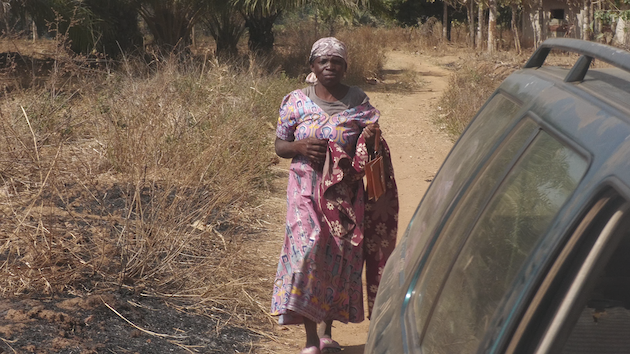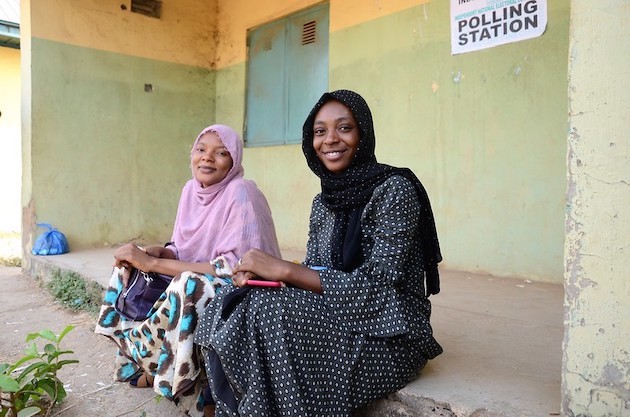Summary:
-
Over 1800 people have died due to instability in Kaduna in the last year, and attacks are recorded practically weekly.
-
The International Crisis Group claims that the rise in organised crime, which includes cattle rustling, kidnapping for ransom, and village raids, has contributed to the increase in instability.
-
Keeping body and soul together has been challenging for the predominantly agricultural inhabitants of Southern Kaduna for years.
-
Bala Musa and other villagers have also given up on the government’s ability to calm the affected areas.
-
All of the presidential candidates for the 2023 elections have promised to combat insecurity, but according to publications that have been published, their pledges lack specifics regarding comprehensive plans.

After her twin girls, her husband, and former co-wife were killed during an attack at her home, Tabitha Siman, a survivor of the massacre, declares that life is not worth living.
Siman is a southern Kaduna, Nigeria resident, where 168 people were abducted, and eight people were killed when bandits attacked a train travelling to Abuja. After the estimated USD 13 million ransom was paid, all were liberated many months later. However, the well-known rail mishap is not an uncommon occurrence. Over 1800 people have died due to instability in Kaduna in the last year, and attacks are recorded practically weekly.
Siman says that in July 2021, her family received word that a neighbouring village had been raided as they were at home in Zango Kataf Local Government.
The Agbak, the besieged village, was only a short distance away, so her husband and a friend hurried to alert their neighbours.
“We began to hear gunfire occasionally. At the top of my lungs, I yelled for everyone to run for cover. The Fulani were attacking, I cried.
She was able to flee to safety with her in-laws and one kid.
“Everyone else we knew missed their departure. In these mass graves, they lie in state.
As the nation prepares to hold its seventh straight general election since returning to democracy 23 years ago, fears about insecurity, insurrection, and banditry are growing.
 During the 2019 Nigerian elections, women pose in front of a polling location. According to analysts, one of the critical challenges Nigeria’s future president would need to solve is security. Thanks to Commonwealth
During the 2019 Nigerian elections, women pose in front of a polling location. According to analysts, one of the critical challenges Nigeria’s future president would need to solve is security. Thanks to CommonwealthAnalysts believe that Nigeria’s security system cannot ensure security, so the country’s growing insecurity could affect the election’s outcome. In a piece for The Conversation, Al Chukwuma Okoli identifies security as one of the next president’s top five issues. The economy, the academic system, national cohesiveness, and the battle against corruption are further issues.
“Nigeria is now more polarised and divided than ever. The country is on the verge of collapse due to the cleavages and fault lines of ethnocentrism, sectarianism, sectionalism, parochialism, and religious fundamentalism. “Okoli’s penmanship
He calls the current status of the nation’s security “apocalyptic.”
“A nexus of banditry and terrorism in the north-west has replaced the waning Boko Haram insurgency in the northeast. The deadly farmer-herder dilemma is still a problem in the north-central. On the other hand, the southeast is deeply involved in the separatist conflict and the accompanying criminal opportunism. While insurgency, piracy, and oil theft continue to plague the south-south, there is an increase in gang and ritual brigandage in the southwest.”
Nigeria’s insecurity has many causes, and many attacks, like the one that hit Siman, are attributed to Fulani herders, who are viewed as violent offenders because it is thought that climate change is to blame for their migration along new routes, which puts them in conflict with established farming communities. But the Fulani are just one of many groups who incite violence. The International Crisis Group claims that the rise in organised crime, which includes cattle rustling, kidnapping for ransom, and village raids, has contributed to the increase in instability. Jihadist organisations are now intervening to exploit the security issue.
According to a piece by John Campbell for The Council on Foreign Relations, “conflicts over water and land use are intensifying in the rural areas,” making Kaduna the epicentre of violence in Nigeria.
There has been ongoing political, ethnic, and religious violence in Kaduna, the nation’s capital, some of which dates back to when Lord Frederick Lugard, the nation’s first governor-general, founded the city and encouraged Muslims to live in the north and Christians in the south.
It’s doubtful whether the Nigerian security system can control the bloodshed, kidnappings, and banditry, whatever their origins.
Freedom Onuoha and Oluwole Ojewale, experts and academics, write in The Conversation that “the government needs to put in place a robust and comprehensive security plan to deal with the dangers to a peaceful election process.” Security forces need to prepare for operations like land and air attacks against armed groups in their strongholds, for instance. Informational and psychological functions are also required to combat the propaganda and false information spread by armed organisations.
According to the International Crisis Group, multiple strategies are required. “The federal government of Nigeria and the states in the northwest should collaborate more, not only to mend long-standing rifts within communities and stop the violence but also to address the structural roots of insecurity in the area. International partners ought to contribute their assistance and knowledge as well.
Another victim of an assault A kid named Jonathan Madaki recalls what happened on March 11, 2019, in an attack that was also attributed to Fulani and left 73 people dead in Dogonoma Community, Kajuru Local Government Area.
They heard gunfire coming from a group they recognised as Fulani on a Monday morning. When his mother instructed him to run, he and his sister headed oppositely.
I was shot in hand and fell to the ground; even though I was in pain, I begged my sister not to scream, and she complied. We spent a long time there, Madaki stated.
Finally, the brothers travelled to a different hamlet, where they were taken to a hospital. After their release, a kind person enrolled him in school.
Keeping body and soul together has been challenging for the predominantly agricultural inhabitants of Southern Kaduna for years. Because nearly every community has become a haven for the attacks, farmers frequently cannot harvest their crops.
Bala Musa and other villagers have also given up on the government’s ability to calm the affected areas.
Musa, a blacksmith and farmer, claims that they frequently find themselves in the middle of the battle, being attacked and being suspected of working with bandits by the police and troops. According to Musa, the police shot him because they believed the locals sheltered Fulani men and concealed weapons.
All of the presidential candidates for the 2023 elections have promised to combat insecurity, but according to publications that have been published, their pledges lack specifics regarding comprehensive plans. – Further reporting Catherine Russell

